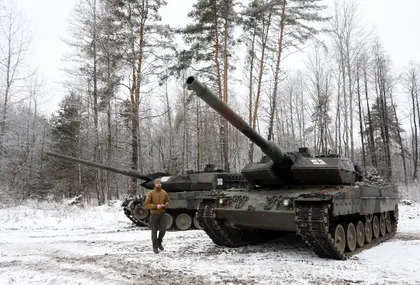Russia is trying to cripple Ukraine’s economy with long-range missile attacks. Kyiv Post has asked various experts whether the situation has reached a critical point and what the prospects for the near future are.
On Nov. 23, Russia launched another massive missile strike on Ukraine’s critical infrastructure, which caused blackouts throughout the country, including in the capital Kyiv, leaving millions of people without power, water, heating and telecommunications.
- Obtain the most current Ukraine news articles released today.
- Get the newest Ukraine news reports as of today.
JOIN US ON TELEGRAM
Follow our coverage of the war on the @Kyivpost_official.
By the following day, Kyiv Mayor Vitaliy Klitschko posted on Telegram: “Water supply has already been restored on the left bank of the city. On the right bank, we plan to restore it in the first half of the day. Seventy percent of the capital still remains without electricity.”
Similar power outages were observed in the regions of Lviv, Odesa and Khmelnytsky regions.
The blackouts forced most of the country’s businesses to suspend operation. Many food stores, pharmacies and cafes without access to power generators had to take an emergency day-off.
The ongoing Russian strikes on Ukrainian infrastructure seriously aggravate the economic situation in the country: GDP continues to fall, leading to growing unemployment.
Missile strike news hurts business
Olesya Astafyeva is the co-owner of a bar-restaurant in Kyiv. Like nearly all businesses, it depends on power supply. The scheduled emergency outages have forced her team to adapt to the new circumstances.

Russian Air Attack Kills Nine in Sumy Region
“For that kind of contingency, we have a candlelight menu. We serve dishes like bruschettas or salads that the cooks prepare in advance. When power is off, we don’t serve dishes that need to be cooked. We serve cocktails,” Astafyeva told Kyiv Post.
Customers can order first course dishes heated on small gas stoves. The bar also has powerful lamps with rechargeable batteries.
“Since Oct. 10 [the first wave of air raids on Kyiv], our sales have fallen. As soon as a massive launch of missiles is reported, customers cancel all table reservations. Two or three days a week we are in the red. Because of the strikes, we earned 40 to 50 percent less than in September,” Astafyeva said.
She added that now her bar has fewer customers because many people have left the city for the winter and those who stay rarely dine out because they are loath to spend hours in the subway waiting out an air raid alarm.
She admits that the catering business is very sensitive to news but is sure that her bar will endure the hard times. “We endured the COVID lockdown crisis, so we know how deal with difficult situations,” she said.
Instead of laying off some of her staff, she decided to raise their salaries a little at the expense of higher prices on the menu.
“I understand that this is my investment in the future. We’ll keep our customers and get even more, because they’ll understand that our prices are appropriate. That will give our bar an advantage,” Astafyeva explained.
The economy is struggling, but it won’t collapse
Economic experts are not quite so optimistic in their forecasts. Dragon Capital, a major investment company, expects a 5 percent economic decline next year, mostly due to the current missile strikes on Ukrainian infrastructure.
“We have downgraded the real GDP outlook for 2022 to -32 percent year-on-year and expect -5 percent in 2023, despite the change in the key assumption regarding the course of war,” the company reported.
The National Bank earlier forecast a 32 percent GDP decline in 2022 and a 4 to 5 percent growth in 2023, the latter forecast being based on an expected reduction in security risks for the country.
Serhiy Fursa, deputy director for securities at Dragon capital, believes that it will be very difficult for Ukraine to reverse the economic downturn and grow.
“Unemployment will increase. More people will leave Ukraine for the winter and those who are abroad will be held back from returning by missile strikes and blackouts at least until spring,” Fursa told Kyiv Post.
He is not much concerned about the operation of the banking system and is sure that some of the banks will continue operating under any circumstances because they are prepared. At the same time, he advises Ukrainians to keep cash instead of relying on credit cards.
Natalia Shapoval, director of the KSE Institute at the Kyiv School of Economics, expects some energy-intensive businesses, such as those in the metallurgy or chemical sectors, to shut down because of power supply disruptions, as they need more energy than generators can provide.
“Ukrainian businesses are uniquely adaptive. Many of them, like gas stations, supermarkets, cafes and restaurants are switching to generators,” Shapoval told Kyiv Post. As a consequence, businesses selling generators, warm blankets, quilts and other goods that help everyone get through the winter will make a good profit, according to her.
Shapoval does not believe that the country’s economy will be paralyzed. “Yes, it will have huge problems, but it will not die. When the war started and the Kyiv region was occupied, when nobody knew what was going to happen, 30 percent of our businesses still continued to operate. And there won’t be a total shutdown now,” the expert concluded.
You can also highlight the text and press Ctrl + Enter










